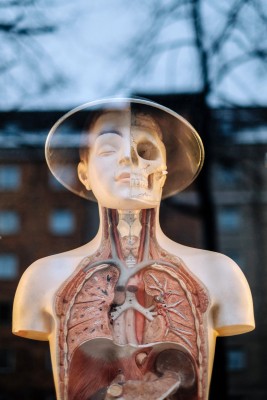Hypothyroidism

Article written by Dr Katya Mishanina
Hypothyroidism (or low thyroid function) is a common condition with 10% of women over the age of 60 affected by this condition. Although men are also affected, 8 times more women suffer from this condition.
Onset tends to be insidious and may go undiagnosed for years. The thyroid gland is involved in regulating metabolism. Therefore, low thyroid function causes your body to slow down and can affect everything from energy levels to bowel movements. If left untreated, hypothyroidism can cause serious health complications.
Symptoms (what you experience) may include:
- Lethargy
- Intolerance to cold
- Weight gain
- Constipation
- Numbness in fingers or hands
- Confusion, depression, dementia
- Headaches
- Irregular/absent periods
Signs(what can be observed/measured) may include
- Slow pulse and reflexes
- Hoarse voice
- Goitre (caused by swollen thyroid gland)
- Dry, scaly, thick, coarse hair
- High cholesterol
- Oedema(swelling) of the hands, feet or eyelids.
Causes
The various forms of hypothyroidism have different causes.
- In chronic autoimmune thyroiditis (Hashimoto’s), the immune system mistakenly attacks the thyroid gland and starts to destroy it.
- Post-radioactive iodine treatment of hyperthyroidism leaves the thyroid unable to produce enough thyroid hormone.
- Hypothyroidism with goitre results when diet lacks iodine. In is very rare in the developed countries due to iodine supplementation of table salt.
Investigations
A number of blood tests that can help clarify the diagnosis and assess the thyroid function.
Management
We use a combination of nutritional, lifestyle, homeopathic and herbal interventions to support the patient with their symptoms and to address the underlying problem whenever possible. Natural desiccated thyroid supplementation may also be used where indicated. Please follow this link to read more about our approach
Who shall I see?
Currently Dr David Owen and Dr Iwona Pogoda see patients with hypothyroidism. Request and appointment.
Following Up
After you initial consultation, we recommend that you have regular checkups to monitor your symptoms and blood tests where necessary.
Multidisciplinary approach
Depending on your needs, your care may be shared with other practitioners at the natural practice or elsewhere. Whenever you permit us, we will write to your GP to ensure they are aware of our recommendations and follow up arrangements.
Further information
References:
Simon C. et al Oxford Handbook of Clinical Medicine3rded. Oxford: Oxford University Press, 2010.
Jones D.S. et al The textbook of functional medicine3rd ed, Gig Harbour, WA: Institute for Functional Medicine, 2010.
Anthony, H et al Environmental Medicine in clinical practice, Southampton: BSAENM publications, 1997.